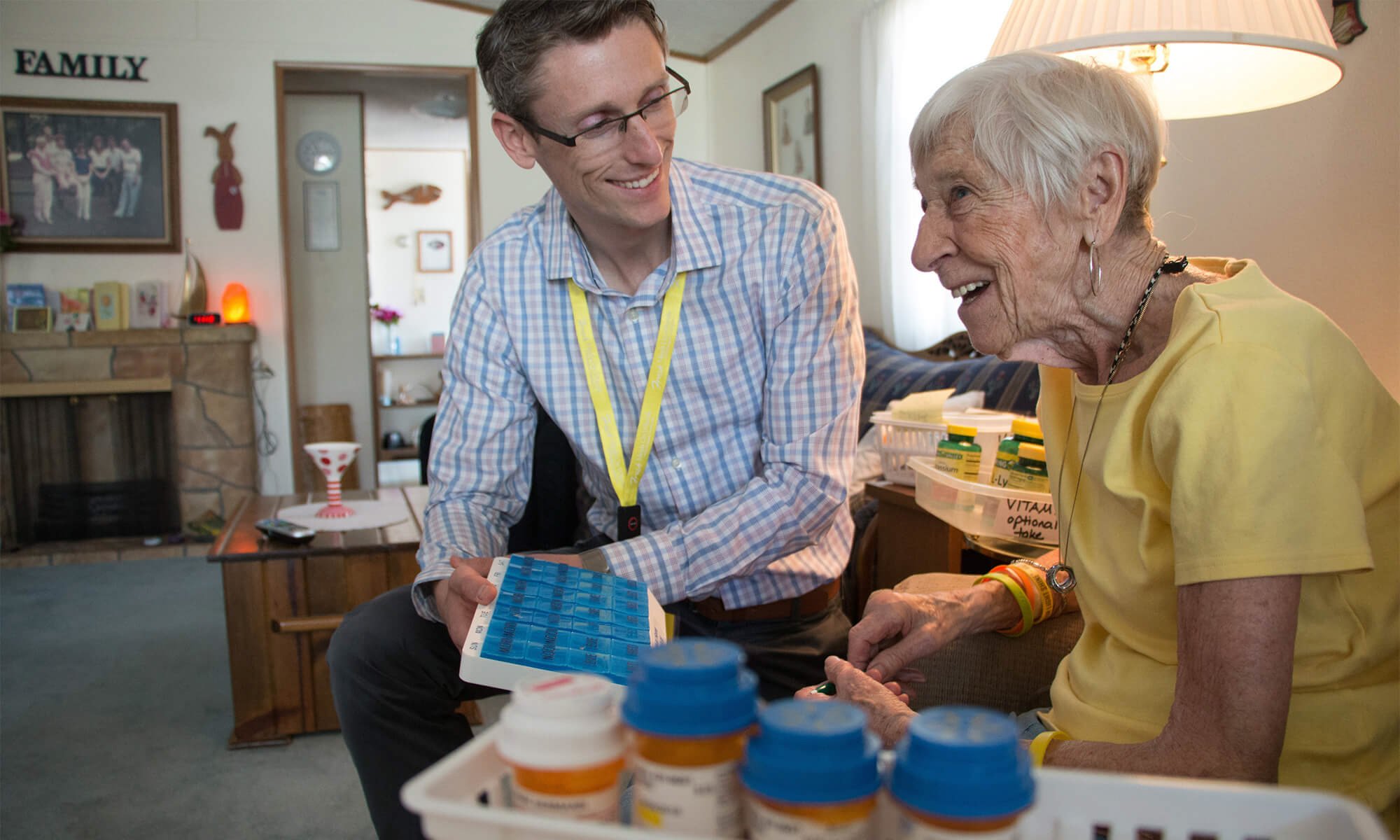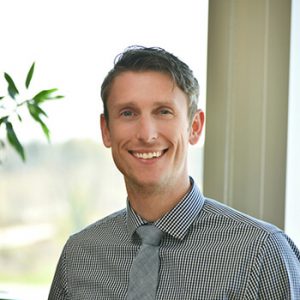 Travis Suss meets with a Sheboygan County resident in her home to advise her on her medication regimen.
Travis Suss meets with a Sheboygan County resident in her home to advise her on her medication regimen. While many people think of pharmacists as experts in recommending the right drug for various disease states, less tend to think of them as the professionals who work to reduce the number of medications that patients take. Nevertheless, in his role as a clinical pharmacist, Travis Suss, PharmD, spends most of his time setting out to accomplish the latter.

Suss, a geriatric pharmacist who joined the CUW School of Pharmacy in July 2015, also holds clinical hours in the geriatrics/memory care clinic at Froedtert & Medical College of Wisconsin. There he works mainly with elderly patients to de-prescribe medications that were recommended to them as many as 30 years ago and have not since been reevaluated.
“I hear the same kinds of answers all the time when I ask people why they’re taking a certain medication,” said Suss. “‘I don’t know.’ ‘That’s just what I’ve always taken.’ ‘I take what my doctor tells me to take.’”
Suss heard the same concerning answers while working as a clinical pharmacist at the Milwaukee VA Medical Center during his early years of practice. His experience with the VA population is largely to credit for his passion for the aging demographic, said Suss.
Last month, some seven years later, Suss has been recognized as an emerging leader in the aging population field. He is among the 15 medical professionals—and one of only two pharmacists—nationwide to be selected to participate in the Emerging Leaders in Aging Program. An effort of Tideswell at UCSF, AGS, and ADGAP, the elite program augments and leverages existing leadership skills for clinical, research, policy, and education initiatives among the aging demographic.
Throughout the course of the one-year program, which begins in October, scholars work in small groups, each led by a prominent academic advisor with expertise in geriatrics and leadership, and which reflect their area of primary interest in research, education, or clinical programs.
Based on his application, Suss was matched to the clinical program track and will seek to scale up an effort piloted last year that utilizes student pharmacists on ambulatory care rotations within a collaborative de-prescribing surveillance program.
One of the barriers to de-prescribing for physicians is that they don’t have the time or ability to know the full picture of the patient’s medication use history, notes Suss. By formalizing a program that utilizes student pharmacists, Suss believes it will help reduce the number of inappropriate medications being taken by elderly patients at Froedtert, and potentially beyond.
“You just see firsthand how vulnerable these patients are,” Suss said. “I was shocked even as a student to see the number of medications they can get on. You look at it thinking, ‘Is anyone looking into this? Has anyone looked into this?’ I sort of just identified a need and wanted to pursue it from then on. I’m honored and excited to be able to further help the aging population through the Emerging Leaders in Aging program.”
Learn more about Concordia’s School of Pharmacy by clicking here.
— This story is written by Kali Thiel, director of university communications for Concordia University Wisconsin and Ann Arbor. She may be reached at kali.thiel@cuw.edu or 262-243-2149.
If this story has inspired you, why not explore how you can help further Concordia's mission through giving.